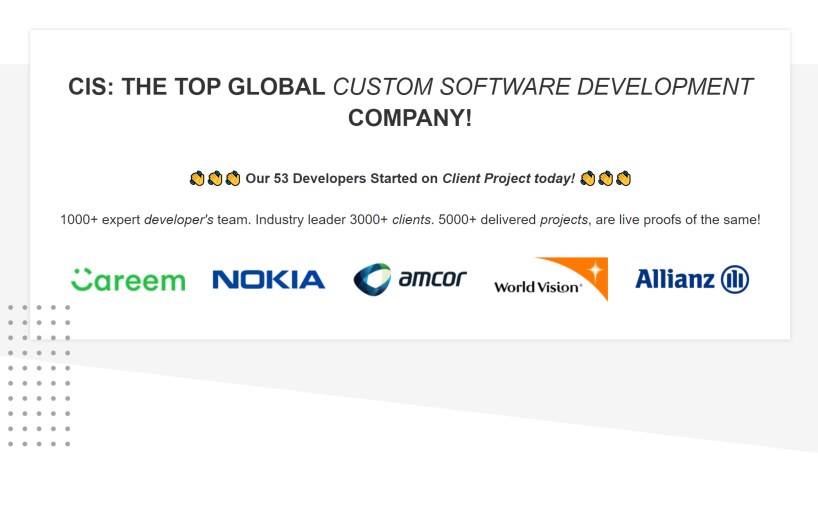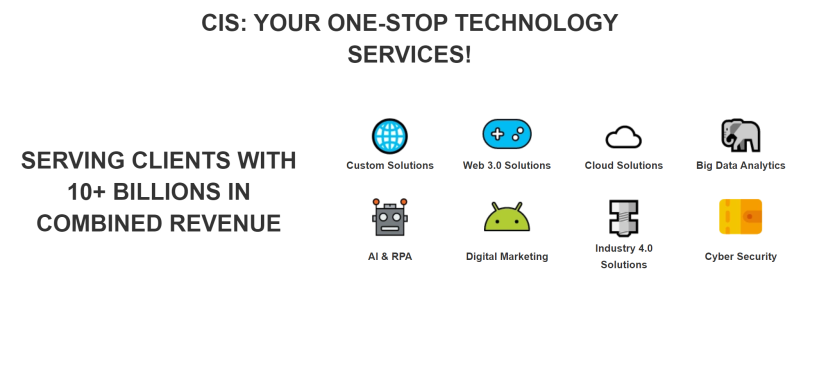Maximizing ROI: The Cost and Benefits of Adopting Salesforce For Supply Chain for Your Business
- Salesforce for supply chain - Detailed Analysis by Enterprise Solutions Experts
Request A Free Consultation - Why Use Salesforce For Supply Chain



Why Mid-size Companies and Enterprises needs Salesforce For Supply Chain:
Salesforce for supply chain is a cloud-based solution designed to help mid-size companies and enterprises streamline their end-to-end supply chains. It provides real-time visibility into the entire process, allowing companies to make data-driven decisions that can reduce costs, increase efficiency, and improve customer satisfaction. With Salesforce for supply chain, businesses can optimize inventory levels and delivery times, track orders in transit from suppliers to customers, manage vendor relationships more effectively, automate order notifications and fulfillment processes, analyze performance metrics across all stages of the supply chain cycle. Additionally, it helps ensure compliance with industry regulations such as GDPR or HIPAA.
Benefits of using Salesforce For Supply Chain in Mid-size companies and Enterprises:
1. Increased Visibility:
Salesforce for supply chain provides real-time visibility into the entire supply chain, including orders, inventory levels, order fulfillment and shipping status. This helps businesses make more informed decisions to improve efficiency and reduce costs.
2. Improved Collaboration:
By connecting all stakeholders in the supply chain with a centralized platform, Salesforce for Supply Chain can help streamline communication between suppliers and customers alike. This improved collaboration allows companies to better manage their relationships with vendors and customers while ensuring timely delivery of goods or services.
3. Enhanced Efficiency:
Salesforce for Supply Chain provides automation capabilities that allow companies to automate manual tasks such as order processing or tracking shipments in real time from any device connected to the internet - reducing errors associated with manual processes and improving overall operational efficiency.
4. Reduced Costs:
By automating processes within the supply chain, companies can save on labor costs by eliminating redundant tasks related to data entry or tracking shipments manually; they also benefit from reduced transportation costs due to optimized routing options available through a centralized system like Salesforce's platform for Supply Chain Management (SCM).Detailed Features of Salesforce For Supply Chain for Mid-size companies and Enterprises:
1. Automated Order Processing:
Salesforce for supply chain provides automated order processing capabilities, allowing customers to quickly and efficiently manage their orders from start to finish. This includes features such as automatic order confirmations, invoicing, shipping notifications and more.
2. Inventory Management:
Salesforce for supply chain helps businesses keep track of inventory levels in real time with its powerful inventory management system. It enables companies to easily monitor stock levels across multiple locations and replenish them when needed.
3. Data Analytics & Reporting:
With Salesforce for Supply Chain's reporting capabilities, users can gain insights into customer behavior, product performance and the overall health of their business operations in real-time or on a scheduled basis. It also offers predictive analytics tools that help organizations anticipate future trends and make informed decisions about their supply chains accordingly.
4. Warehouse Management System (WMS):
The WMS feature allows users to better manage warehouse processes such as receiving goods from vendors, storing items in the right places at the right times and picking products for delivery or shipment efficiently using barcode scanning technologies .
5. Supplier Collaboration Platforms:
Through supplier collaboration platforms like Ariba Network or Coupa Procurement Cloud , companies can connect directly with suppliers so they can communicate seamlessly regarding orders, shipments and more without having to rely on manual processes or emails back-and-forths .
6. Transportation Management Systems (TMS):
TMS solutions allow companies to optimize transportation routes based on cost estimates while ensuring compliance with regulations related to driver safety standards , vehicle maintenance schedules , fuel usage monitoring , etc .Who are the Users of Salesforce For Supply Chain:
The customers using Salesforce for supply chain include global companies such as Coca-Cola, Nestle, Unilever, Abbott Laboratories and Procter & Gamble.
How to ensure Data Security and Compliance with Salesforce For Supply Chain:
1. Implement a comprehensive security policy:
Establish and enforce a comprehensive security policy that outlines the process for protecting data, including how it is collected, stored, accessed and shared. This should include access control measures such as authentication protocols and encryption techniques to protect sensitive information.
2. Utilize secure cloud infrastructure:
Leverage Salesforce's secure cloud infrastructure to store your supply chain data in an encrypted format with multiple layers of protection from unauthorized access. Additionally, use two-factor authentication for user logins to further enhance security for users accessing the system remotely or from mobile devices.
3. Monitor activity logs:
Regularly monitor activity logs within Salesforce to identify any suspicious activities or attempts at unauthorized access by third parties or malicious actors attempting to gain access to your supply chain data.
4 .Ensure compliance with industry regulations:
Ensure that all processes are compliant with applicable industry regulations related to privacy, safety, health and environmental standards when handling supply chain data in Salesforce (e.g., GDPR). This includes having adequate procedures in place for dealing with requests from customers regarding their personal information held within your systems as well as ensuring that any third party suppliers you work with also comply with these standards before they are granted access rights into the platform itselfHow Salesforce For Supply Chain can increase organization Productivity, Agility, and Profitability:
Salesforce for supply chain can increase organization productivity, agility and profitability by providing a comprehensive suite of tools that streamline operations. It enables organizations to track inventory levels in real-time, automate processes such as order fulfillment and shipping, and provide visibility into the entire supply chain. Additionally, Salesforce for supply chain provides predictive analytics capabilities which allow organizations to anticipate customer demand and make informed decisions about inventory management. This helps reduce costs associated with overstocking or under stocking items while increasing customer satisfaction. Finally, it allows companies to gain greater insights into their suppliers' performance so they can identify areas of improvement in the overall supply chain process.
How to Measure KPIs and increase Benefits of implementing Salesforce For Supply Chain in Mid-size companies and Enterprises:
1. Set measurable KPIs:
Identify the key performance indicators (KPIs) that you want to track in order to measure the success of implementing Salesforce for supply chain in mid-size companies and enterprises. Examples of KPIs could include inventory accuracy, cost savings, customer satisfaction scores, delivery times, etc.
2. Track progress:
Once you have identified your KPIs, start tracking progress over time by gathering data from various sources such as surveys or reports from customers and suppliers. This will help you determine whether the implementation is having a positive impact on your company's operations or not.
3. Analyze results:
Analyze the data collected to understand how well Salesforce for supply chain is performing compared to other solutions available in the market and if it is meeting your expectations or not. This will also give you an idea about potential areas where improvements can be made so that maximum benefits are achieved from using this solution.
4. Make changes accordingly:
Based on your analysis of results make necessary changes in order to maximize benefits of using Salesforce for supply chain in mid-size companies and enterprises such as improving customer service levels or streamlining processes with automation tools provided by Salesforce platform etc..How Salesforce For Supply Chain can increase Employee Morale in your organization:
Salesforce for supply chain can increase organization employee morale by providing employees with access to real-time data and analytics. This will allow them to better understand the performance of the supply chain, allowing them to make more informed decisions about how they can improve it. Additionally, Salesforce for Supply Chain allows organizations to set up automated processes that streamline their operations and reduce manual labor, which can help free up time for employees so they can focus on other tasks or activities that are important to their job satisfaction. Finally, having a unified system in place also helps create a sense of unity among team members as everyone is working from the same source of information.
How Salesforce For Supply Chain is Better than its Competitors:
Salesforce for supply chain is better than its competitors because it provides a comprehensive suite of cloud-based solutions that enable businesses to streamline their operations and increase efficiency. It offers features such as real-time visibility into inventory, order management, fulfillment, customer service and more. Additionally, Salesforce for supply chain integrates with other enterprise applications like ERP systems to provide a seamless experience across the entire organization. Finally, Salesforce's powerful analytics capabilities allow users to gain insights into their supply chain performance and make informed decisions quickly.
Cost to Develop & Implemention of Salesforce For Supply Chain:
The cost of developing and deploying Salesforce for supply chain will depend on the scope of the project, as well as any additional features or customization needed. Generally speaking, Salesforce development projects can range from a few thousand to several hundred thousand dollars depending on complexity. Additionally, there may be associated costs related to hosting and maintenance once the project is deployed.
Why outsourcing implementation services for Salesforce For Supply Chain is better for Mid-size companies and Enterprises:
Outsourcing implementation services for Salesforce for supply chain is beneficial for mid-size companies and enterprises because it provides access to specialized expertise that may not be available in-house. Outsourcing also helps reduce costs associated with hiring, training, and maintaining a dedicated staff of professionals. Additionally, outsourced implementation services can help speed up the process of getting the system up and running by providing an experienced team who are familiar with the platform and can quickly identify any potential issues or areas where improvements could be made. Finally, outsourcing allows companies to focus on other aspects of their business while having experts handle the technical details related to implementing Salesforce for supply chain.


